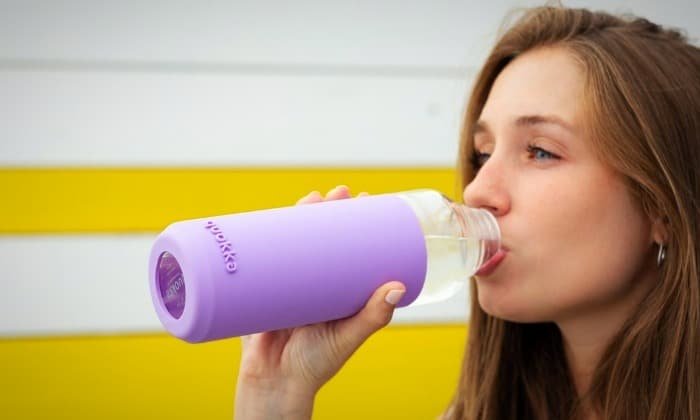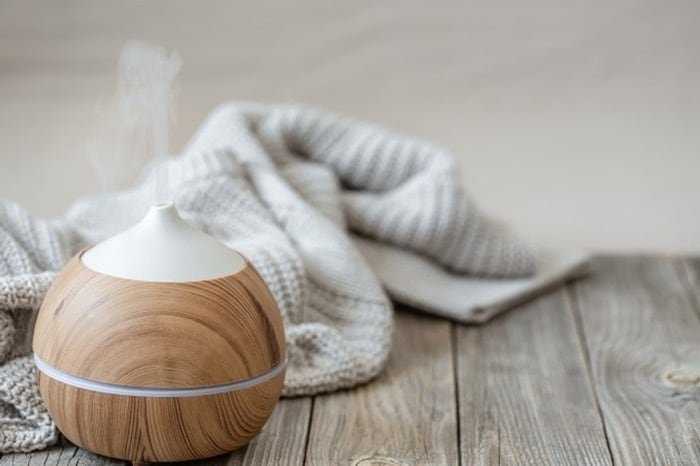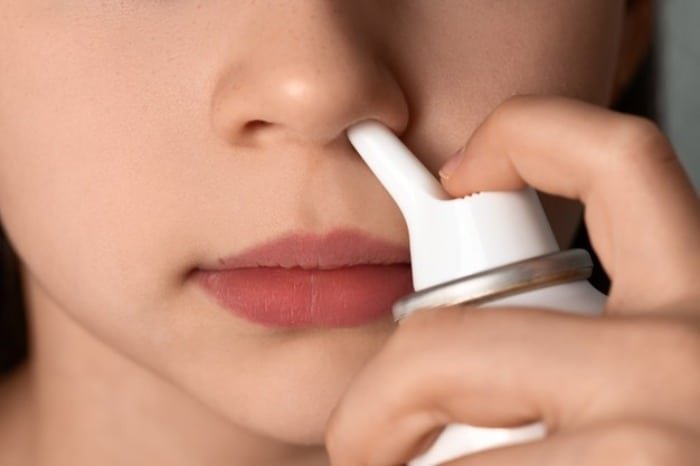Dos and Don’ts for Sleeping with a Blocked Nose
Coldand allergies lead tonasal congestionand when the congestion gets so bad that you can hardly breathe, sleeping becomes difficult. The first instinct is to rest and use a decongestant to clear your sinuses, but this isn’t always the best option because many decongestants contain ingredients that keep you awake.
It’s worth noting that it’s not always mucus buildup that causes nasal congestion; swelling of the nasal passages can also create a feeling of blockage. Therefore, before resorting to medication, try some of the tricks mentioned in the health and wellness section of SelMagz.SelMagzeven when you can’t breathe through your nose.
Stay Hydrated
Drinking plenty of liquids helps thin mucus and clear your sinuses. Therefore, doctors recommend increasing fluid intake to (11.5 cups) for women and (15.5 cups) for men when you have a cold.
Water is the best option, but herbal tea is also a good choice while you should avoidcaffeineas it not only disrupts sleep but does not clear the sinuses.

Don’t Blow Your Nose Too Hard
It may seem odd, but blowing your nose frequently during the day can worsen nasal congestion. It’s better to use tissue ifyour nose is runningor try other methods like rinsing, but avoid forcefully clearing your nose.
Researchers have found that the pressure from blowing can cause mucus and liquid to back up in your sinuses, increasing congestion. If clearing your nose is necessary, do it one nostril at a time.
Eat Helpful Foods
Spicy foods are very beneficial for relieving nasal congestion. A compound called capsaicin found inchili peppersthins mucus and can help clear the sinuses. If you have post-nasal drip or are prone toheartburn,chicken soupis another tasty remedy.
While there’s no conclusive evidence that chicken soup actually cures colds, some studies suggest it has mild anti-inflammatory properties and the broth helps keep you hydrated, so eatingsoupwhen you have a cold won’t hurt.

Prepare Your Room
A good sleep environment supports sleep at all times, but it’s even more important when you feel unwell. Keeping your room cool and dark and adding one or two extra pillows can help you feel more comfortable.
Take a Shower
Steam helps open the sinuses and thin mucus, making it easier to breathe. So, take a warm shower before bed to help you relax, or sit in a closed bathroom.
Many people know that nasal congestion gets worse at night, but taking care of yourself during the day can help prevent this, and it’s not the only thing you can do foreasy sleep.
Use a Humidifier
Dry air in your bedroom can irritate your nasal passages and worsen congestion. Using a humidifier at night can help keep the air moist for better sleep. A 2010 study showed that maintaining humidity in the air helps preventinfluenzaJust be sure to clean the device regularly to prevent the buildup of mold and bacteria that can cause illness.

Use Essential Oils
Although there’s no solid scientific evidence that essential oils can help you breathe easier, they can help you relax and rest more. Reports suggest that diffusing tea tree oil,eucalyptusor peppermint oilcan relieve nasal congestion.Apply Menthol to Your Chest
Rubbing menthol oil on your chest and back, with your doctor’s approval, can help you breathe easier. Some people apply this oil to their feet and cover them with thick socks, claiming it helps relieve nasal congestion, although there’s no study confirming this.
Try a Warm Compress
When in bed, use a warm compress on your forehead and sinuses to help drain mucus.
Use a Saline Spray
Rinsing your nasal passages before bed can help relieve congestion since it can clear mucus from your sinuses. In cases of severe congestion, you might want to use a decongestant nasal spray, so follow the instructions.
Be careful because overuse of these sprays can lead to swelling and irritation in your nasal passages and worsen congestion.
Sleep on Your Back

When you have nasal congestion, the best sleeping position is on your back with your head on a pillow. This way, gravity can help drain mucus from your sinuses, while sleeping on your side can cause mucus to drain and create more pressure and discomfort, or even congestion on both sides. Sleeping on your stomach only increases pressure and pain in your face.
Make sure to use a pillow that supports your neck and shoulders. These pillows can not only help with sinus congestion but also reduce acid reflux,
lower back painand other issues that keep you awake.Use Doctor-Prescribed Medications
If nasal congestion is keeping you from sleeping easily and none of the methods are helping, you may need to consider medication. However, keep a few tips in mind.
First, while decongestants may be helpful for daytime use, they may not be ideal for sleeping. In many cases, decongestants are stimulants that actually keep you awake. While some decongestants are designed solely for relieving congestion, others include pain relievers and other medications for treating multiple symptoms. Read the packaging carefully and choose those that address your symptoms.
Consult with your doctor before taking other medications. Some medications are not recommended for people with certain conditions. For example, if you have
high blood pressure, medications containing pseudoephedrine candangerously increase yourheart rateandblood pressure.
If you’re using decongestants, choose a medication that specifically does not raise your blood pressure.
A better option for treating nasal congestion with medication is to choose an antihistamine instead.Antihistaminescausedrowsiness, so it’s best to take them before bed. They work by blocking histamines, hormones that contribute to allergic reactions including congestion.
Another medication used is corticosteroid nasal sprays. These over-the-counter sprays help reduce inflammation in your nasal passages, causing congestion.

Neti Pot and Nasal Congestion
Rinsing the nose is a common option for treating nasal congestion before bed and is usually done with a neti pot, a device designed specifically for flushing water through the nasal passages.
To use a neti pot, fill the device with a sterile saline solution. This mixture can be prepared in advance or made with distilled or boiled water. Bend over the sink and tilt your head to the side, pouring water into one nostril and letting it exit from the other. Then repeat the process on the other side.
This helps clear mucus from your nose and reduce congestion. In addition to a neti pot, you can also use pressure containers designed for rinsing your nasal passages.
Make Your Bedroom Hypoallergenic
Not every nasal congestion is caused by colds or flu.Allergiescan also cause nasal congestion, along with sneezing, runny nose,sore throatand other symptoms that can affect sleep. In fact, about half of those withseasonal allergiesexperience sleep difficulties during allergy flare-ups.
The best way is to prevent allergies from arising in the first place. Taking antihistamines or corticosteroid medications, whether over-the-counter or prescribed, can help block the allergens causing the reactions.
Other measures to prevent allergies in the bedroom include:
- Keeping pets out of the bedroom, as pet hair and dander in the environment can trigger allergies.
- Using natural, hypoallergenic materials like 100% cotton for bedding and avoiding down, feathers, wool, and velvet that can aggravate allergies and worsen nasal congestion.
- Washing bedding covers regularly to prevent dust buildup and lint on the bed.
- Regularly dusting andvacuumingyour bedroom.
- Using air filters to eliminate allergens that contribute to your nasal congestion.







